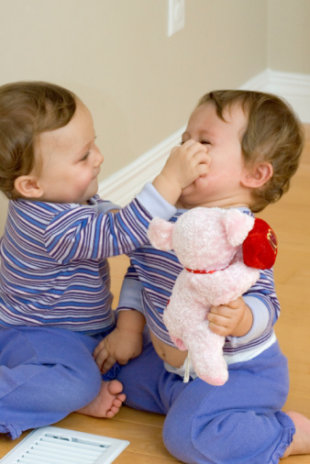 People take their burgers seriously in Toronto, but not as seriously as some people take their burger names.
People take their burgers seriously in Toronto, but not as seriously as some people take their burger names.As the Toronto Star reports, two items have been wiped from the menu at popular bun-and-patty joint Holy Chuck after the owners received multiple complaints over their "Half-Breed" and "Dirty Drunken Half-Breed" burgers.
"The term 'half-breed,' if you look it up in just about any dictionary, is really a negative, disparaging and offensive term used to describe people of mixed ancestry, specifically people of mixed indigenous and non-indigenous ancestry," Ryerson University professor Pamela Palmater told the Star.
"Now add dirty and drunken to the term half-breed and it takes it to a much higher level in terms of the level of insult that you're talking about."
Though the two offending burgers had been on full display for seven months, it wasn't until last week that a grassroots movement against the Yonge St. restaurant really took shape.
The business has been inundated with angry phone calls, while Holy Chuck's Twitter account and Facebook page have been pounded with charged commentary.
"You should be charged with a Hate Crime," wrote one incensed individual.
"Happy to hear you've removed the offensive burger from your menu, but what are you going to do to make it right?" asked a woman named Jen, one of many who demanded a public apology.
Co-owner Bill Koutroubis told the paper he's lost sleep over the uproar and claims he never meant to insult any cultural group.
He insisted that while he's familiar with the Metis, an aboriginal group of mixed white and First Nations heritage, he had no idea "half-breed" was a negative term.
"Within the hour I was informed it was a racial slur, it was removed immediately," he said, adding that he's learned a hard lesson in being better informed about cultural sensitivities.
Like most of the items on the menu, the burger names constituted a cheeky play on words.
As Koutroubis explained, "Half-breed" referred to the fact that the patties are mixed with a blend of cured bacon and beef.
"Drunken" alluded to the alcohol content in one of the specialty toppings, while "dirty" simply drew attention to the fact that you were likely to need lots of napkins while eating it.
They joined their saucy brethren "The Go Chuck Yourself" and "The Greek Bahahastard" — the restaurant's signature lamb burger and a nod to the owners' Greek heritage.
True to form, the controversy has attracted a band of burger defenders, most of whom can't believe so much fuss has been made over what they feel is nothing.
"Bill and John are great guys and make a hell of a burger. Keep it up boys and don't let the PC police worry you," wrote self-identified "Korean-Irish half-breed" David Lee.
"This is not racial but just a joke, because it targets no specific ethnic group of people," suggested a Toronto Star reader.
"Political Correctness does not solve the problem it just breeds revulsion and drives everything underground which is a lot more damaging," the comment concluded.
And while it may appear that Canada has the lockdown on political correctness, a restaurant south of the border recently met with similar wrath over its menu item names.
Lola's Burrito in Jacksonville, Fla. was hit with heavy backlash after introducing the "Wetback Willie" burrito. It joined the "No Papers Shrimp," both derogatory references to illegal Latin American immigrants crossing the U.S./Mexico border.
Click here for full story and picture credits









